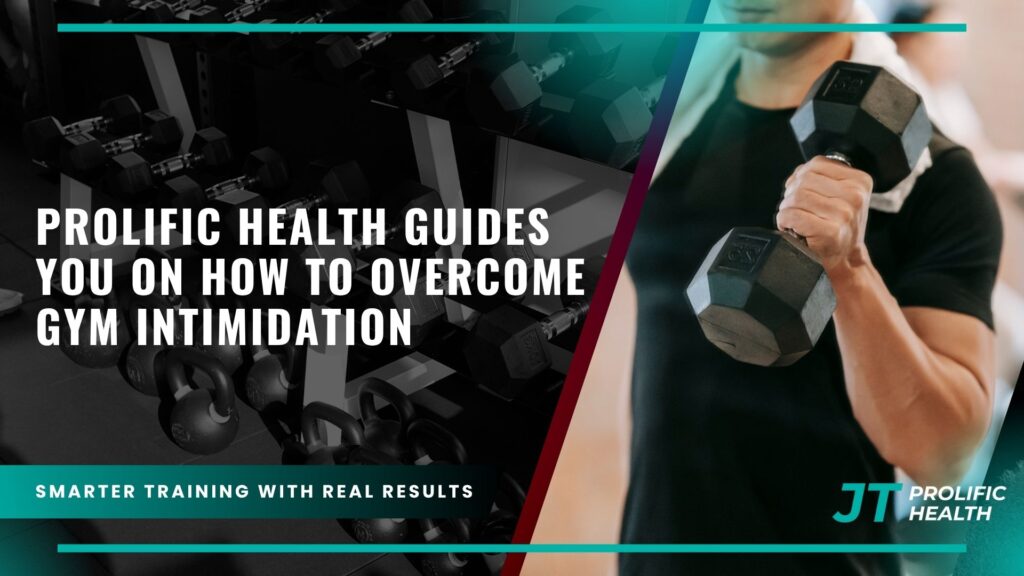That initial walk into a fitness centre doesn’t need to feel like stepping onto a stage. At Prolific Health, we recognize that unfamiliar equipment, crowded spaces, and perceived expectations can create mental barriers stronger than any physical challenge. What many don’t realize? Even certified trainers occasionally grapple with self-consciousness in new workout environments.
Gymtimidation – the blend of nervousness and self-doubt in fitness settings – affects individuals across all experience levels. It’s why 42% of abandoned memberships occur within the first 90 days, according to recent industry data. Your feelings of uncertainty aren’t weaknesses; they’re human responses to stepping outside comfort zones.
Our team in Richmond and Vancouver specializes in transforming these challenges into growth opportunities. Through personalized orientation sessions and community-building strategies, we’ve helped hundreds reframe their relationship with fitness spaces. Remember: every expert lifter or marathon runner once stood exactly where you are now.
Key Takeaways
- Gym-related anxiety impacts both newcomers and seasoned fitness enthusiasts
- Different workout environments can amplify or reduce self-consciousness
- Temporary discomfort often precedes lasting confidence building
- Professional guidance accelerates adaptation to fitness spaces
- Community support systems significantly improve exercise consistency
- Progress begins with acknowledging – not judging – initial hesitations
Understanding Gym Intimidation
Stepping into a gym can feel like entering uncharted territory. This experience, commonly called gymtimidation, blends physical space unfamiliarity with social pressures. At Prolific Health, we’ve observed these reactions stem from evolutionary instincts – your brain’s ancient wiring interpreting new environments as potential threats.


What is Gymtimidation?
Gymtimidation describes the mix of nervousness and self-doubt in fitness spaces. It’s not just about crowded rooms or complex equipment. For many, it surfaces through comparisons with others’ physiques or workout intensity. These feelings often peak when wearing athletic wear that highlights body shape.
Common Triggers and Emotional Responses
Four factors frequently spark gym anxiety:
- Unfamiliar equipment layouts creating confusion
- Social anxiety about being watched during exercises
- Self-consciousness about fitness levels compared to peers
- Past negative experiences in similar environments
Your racing heartbeat or reluctance to enter weight areas aren’t weaknesses. These responses originally helped humans assess risks in unknown situations. Recognizing them as natural reactions helps shift perspective from judgment to problem-solving.
Recognise the Signs of Gym Anxiety
Many people experience a knot in their stomach before entering workout spaces. This response isn’t personal failure – it’s your body’s alert system activating. At Prolific Health, we’ve helped countless individuals decode these signals through mindful observation.


Identifying Physical and Mental Symptoms
Your body often speaks first in stressful situations. Physical signs might include trembling hands during locker room changes or sudden breathlessness near cardio equipment. Some report nausea when approaching weight benches, while others notice excessive sweating before even starting their routine.
Mental patterns frequently amplify these reactions. Racing thoughts about perceived mistakes (“Everyone’s watching my form”) often overshadow workout focus. You might mentally rehearse exit strategies instead of exercise sequences. Perfectionism creeps in through thoughts like “I should lift heavier” or “My outfit looks wrong.”
Avoidance behaviours reveal deeper struggles. Cancelling memberships after one uncomfortable experience or constantly rescheduling sessions indicates underlying stress. Relief when skipping workouts often confirms anxiety’s grip on your fitness journey.
Nearly 30% of adults encounter anxiety-related challenges, according to mental health research. Recognising these patterns helps separate normal nerves from overwhelming distress. Awareness becomes your first tool for creating sustainable exercise habits that respect both physical and emotional needs.
How to Overcome Gym Intimidation
Entering fitness spaces often sparks unexpected emotional responses. Prolific Health’s approach focuses on practical preparation paired with compassionate self-awareness. Our Richmond and Vancouver clients find success through tailored methods that transform uncertainty into empowerment.
Step-by-Step Strategies
Begin with self-reflection. Identify specific concerns through journaling or guided questions. Common themes include equipment confusion or social comparisons. Address these through research and gradual exposure.


Virtual facility tours reduce initial stress. Many centers offer online layouts and equipment guides. Schedule short visits during quieter periods to build familiarity without pressure. Staff orientations clarify proper machine usage and etiquette.
Building Confidence in the Gym Environment
Clothing choices impact mental comfort. Select breathable fabrics that allow movement, not restrictive trends. Time workouts strategically – most facilities have predictable lulls between 9-11 AM or 2-4 PM weekdays.
Bringing a trusted companion creates immediate support. Shared laughter during learning moments eases tension. Celebrate small achievements like completing a full circuit or asking staff questions. Progress builds through consistent, manageable challenges.
Every fitness journey starts with imperfect beginnings. Our team helps craft sustainable routines honoring both physical goals and emotional needs. Lasting confidence grows from repeated positive experiences.
Practical Strategies and Expert Advice
Building lasting confidence in fitness spaces requires tailored solutions. Prolific Health’s Richmond and Vancouver teams combine professional insights with adaptable methods that respect individual needs.
Personalised Pathways to Comfort
Our process begins with understanding your unique challenges. Through detailed assessments, we identify triggers like equipment confusion or social worries. This analysis shapes custom programs addressing both physical goals and emotional barriers.
Strength in Shared Experiences
Group sessions offer structured guidance while fostering community connections. Participants follow certified trainers through energizing routines, learning proper form alongside peers. Many find camaraderie in shared progress milestones.
- One-on-one coaching clarifies exercise techniques
- Orientation tours explain equipment layouts
- Pre-planned workout sequences reduce decision fatigue
Mindful Preparation Methods
Breathing exercises before entering facilities help center your focus. Visualizing successful workouts builds mental readiness. Our trainers teach affirmation practices that replace doubt with constructive self-talk.
Scheduled session times create predictable routines. Packing gym bags the night before removes morning stress. These small preparations build momentum toward consistent fitness habits.
Supporting Your Fitness Journey in Richmond and Vancouver
Local knowledge transforms fitness challenges into achievable goals. Prolific Health’s Richmond and Vancouver teams combine municipal health data with neighbourhood-specific insights to create sustainable exercise plans. Research shows regular physical activity reduces anxiety by 26% in adults through natural endorphin release.
Leveraging Local Facility Guidelines and Government Data
We align recommendations with Vancouver Coastal Health’s activity guidelines and Richmond’s recreation strategies. Municipal reports reveal residents using multiple facilities maintain 37% higher workout consistency. Our team cross-references this data with client preferences to suggest ideal locations.
Community Resources and Ongoing Support
Richmond’s Minoru Centre and Vancouver’s Hillcrest Complex offer beginner-friendly environments we often recommend. Our clients access exclusive partnerships with local yoga studios and swimming pools to diversify routines. Quarterly progress reviews ensure strategies evolve with your changing needs.
Connect with our team at 604 818 6123 for neighbourhood-specific guidance. Whether exploring the Olympic Oval’s track or downtown Vancouver’s boutique studios, we help you find spaces that feel like home. Lasting fitness success grows from community connections and expert support.
Take the First Step Toward Gym Confidence
Your journey toward fitness confidence begins with one intentional choice. Prolific Health’s Richmond and Vancouver teams specialize in creating supportive pathways for those navigating exercise spaces. Research confirms regular physical activity reduces anxiety symptoms by 26% while boosting cognitive function.
Building comfort in workout environments follows natural progression patterns. Initial uncertainty often gives way to familiarity through consistent routines and professional guidance. Our clients discover sustainable strategies addressing both body awareness and mental health needs.
Connect with our experts at 604 818 6123 to discuss personalized solutions. We design plans that respect your unique timeline and comfort levels, whether you’re new to fitness or returning after breaks. Every conversation starts with understanding your specific goals and concerns.
Lasting change emerges through compassionate support and practical tools. Celebrate small victories like completing your first full workout week or mastering equipment basics. These milestones compound into transformative habits that enrich overall health.
Take action today. Let’s craft exercise routines that feel empowering, not overwhelming – because everyone deserves to thrive in fitness spaces.




